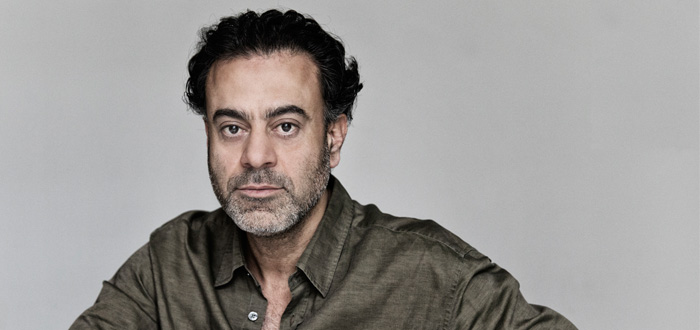
Composers about composers
On our blog, our contemporary composers present their favorite work from our catalogs. This time
Samir Odeh-Tamimi introduces
Giacinto Scelsi‘s Fourth String Quartet.
Every note is a world, every sound is a cosmos
“I was in my first or second semester of my composition studies at the University of the Arts in Bremen, when a fellow student asked me whether I knew the composer Giacinto Scelsi. I had to admit that I had never heard his music or even his name before. So this guy opened his bag and took out some sheet music. It was Giacinto Scelsi’s Fourth String Quartet.
At the first glance it was already clear to me that this was music that would capture me for a long time. We listened to the piece together, and I was lost in it after a short time. I could not concentrate on reading the music while listening to it. I was totally captivated, fascinated, astonished, irritated – and totally enthusiastic about it.
Many questions arose. For instance how did Scelsi create such a finely differentiated range of color with only four string instruments? And how did he manage to make these four instruments sound like a big orchestra?
Later I got to know many more works by Scelsi. Here was a composer who walked his own way unswervingly and with enormous radicalism. My enthusiasm and admiration for his music increased year by year. It still fascinates and shakes me up. Scelsi’s music has a power, directness, intensity, persistence, strength, clarity and exceptional beauty that brings everything back to life that stands still and that does not seem to breathe.
He is a master of simplicity: a simplicity that became bigger, wider and more colorful over time. In some moments his sounds become seemingly dangerous. Scelsi said of his own eighth and ninth piano suites (composed in 1952 and 1953), that one should neither play nor listen to this music if one is not mentally stable.
He also once said that art must be simple. I thought about this sentence for a long time. Then one day I understood what Scelsi could have meant: that art should be simple in terms of its technical execution, but that it also should have a deeper spiritual and mental meaning. Scelsi’s own music is simple, but its sound and underlying spiritual level is also very complex. This deeper level is a result of a concentration of spiritual and mental fortitude. Scelsi’s music as well as his mystical and philosophical ideology has become an important companion for me.”
Samir Odeh-Tamimi